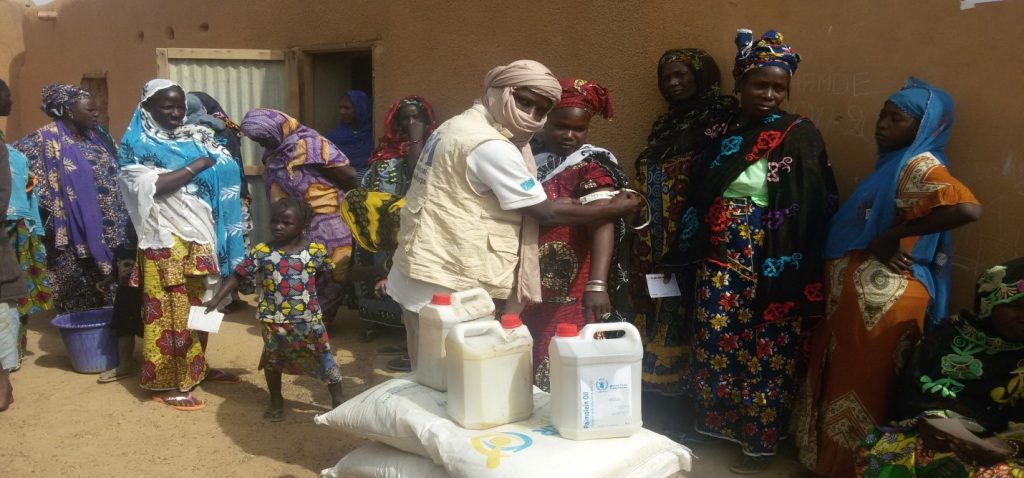Despite enormous humanitarian needs, Mali’s northern region remains in the periphery of most people’s attention. In spite of devoted efforts by local government, supported by regional and international missions, violence and instability persist in northern Mali and vulnerable community members are badly affected. The conflict together with several years of drought has sparked a silent crisis, ongoing for several years now: In Mali’s Timbuktu and Gao regions young children, pregnant and breastfeeding mothers suffer detrimentally from lack of food.
A forgotten emergency. At the end of 2017, data indicated that malnutrition in children had reached alarming levels in both Timbuktu and Gao, both situated in the north. To put it into context, a 10% malnutrition rate is enough to reach the WHO emergency threshold and in Timbuktu and Gao, the rate was 15%.

An aim for the humanitarian community is to reinforce vulnerable people’s access to social basic services in Mali and food distribution activities play an essential role when trying to achieve that. The distributions normally take three to five days in one location and they are more complex than it may seem. To prevent and treat the nutrition crisis in Mali’s northern region, International Medical Corps carried out nutrition screening and food distribution in an area called Bambara-Maoude, in December 2017.
To reach as many people as possible, distribution activities require meticulous preparation, carefully liaising with local authorities as well as community and religious leaders. By ensuring that local communities are aware of the service and trust the organisation that carries it out, these partners make an underrated contribution to humanitarian assistance, in Mali and beyond.
Thanks to them, close to 8500 children and around 3500 pregnant and breastfeeding women received food packages in Timbuktu and Gao, in December last year. 12 000 people might sound like a decent number but unfortunately, it is only a small contribution. Over 4 million people in Mali will require humanitarian aid in 2018 and over 800 000 children, pregnant and breastfeeding women will require food assistance. Alarming numbers that illustrate that although the goal might be straightforward – ending global hunger – the way there is far from easy.
